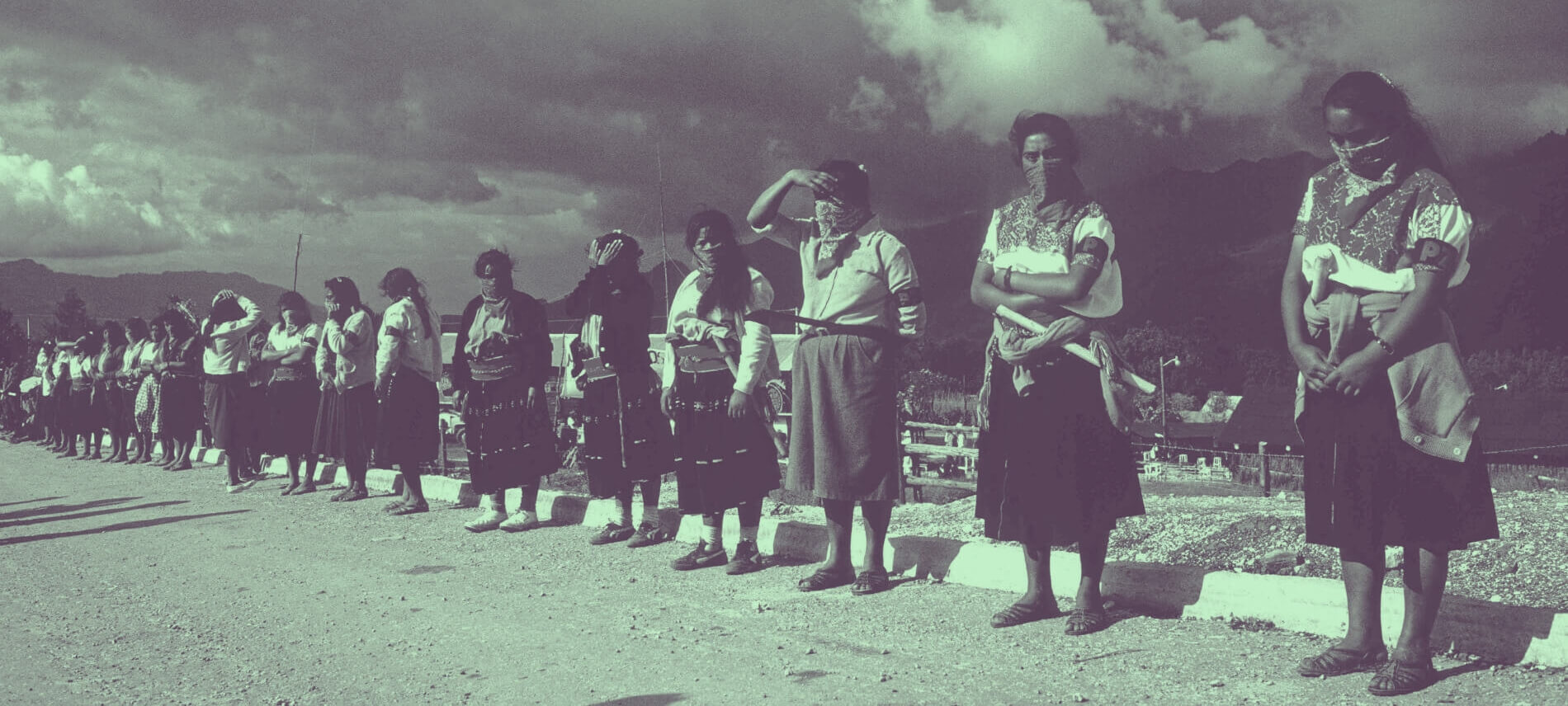
The Indigenous Rights Report is a weekly crash course on everything in the indigenous world.
Make this podcast happen! Support us on Patreon!

This is the Indigenous Rights Report for the week of November 2, 2019. In this week’s report:
- Indigenous Opposition Forces Andes Petroleum Out of Controversial Oil Block
- Philippine tribe renews fight against a hydro dam
- Indigenous communities receive unequal disaster recovery aid in the US
- Costa Rica to provide internet to indigenous communities
- Dow Chemical agrees to $77 million environmental restoration settlement
- Organizations slam Peru Culture Ministry over plans to define indigenous policy
- UN General Assembly adopts “Rights of Indigenous Peoples” resolution
- Judge restores Obama-era drilling ban in the Arctic
- Manitoba government called out for not consulting Métis Community
- Indigenous Brazilians fight trade deal with Switzerland
- Russia Shuts Down Arctic Indigenous Rights Group
- Mapuche take down symbols of Spanish colonization
- New fund to help get First Nations off oil along B.C.’s northern coast
- Navajo Win Back Political Power in Utah
- Trump tries to rebrand Native American Heritage Month
Indigenous representatives from Ecuador’s Amazon declared victory in a multiyear effort to stop drilling plans by Andes Petroleum in a 158,000-hectare rainforest concession known as Block 79, which overlaps the titled territory of the Sapara and Kichwa indigenous nationalities. Ecuador’s Ministry of Energy and Non-Renewable Natural Resources issued a resolution on October 10th, 2019 granting a force majeure request by Andes Petroleum Ltd Ecuador due to the “resistance and social and political opposition” of indigenous peoples potentially affected by the project. This information was only made public last week.
“The declaration by the government of force majeure in Block 79 is a result of our fight, and it was forced to recognize that these territories are ours, we live there. We are asking the government to remove all oil concessions from our territories. We will remain vigilant,” said Yanda Montahuano, a leader of the Sapara Nation during a press conference.
The Dumagat led a successful movement against the massive Laiban Dam project in 2009, saving more than 28,000 hectares (70,000 acres) of forestland in the Philippines. But then the government repackaged the project into nine smaller dams that observers say will undermine any resistance to the project. President Rodrigo Duterte secured with a $235.9 million loan deal from China to develop one of the projects–the Kaliwa Dam–inside one of the most biodiverse areas in the country.
So far, the plan is working. Some of the communities that were opposed to the bigger dam a decade ago now feel that the Kaliwa Dam will not have a direct impact on them. “Times have changed,” says Kapitan, a leader of the Dumagat-Remontado. To make matters worse, Duterte has warned of the use of “extraordinary powers” to push the project through.
In recent decades, more than 70 natural disasters have occurred on tribal lands, with some communities being hit more than once a year. According to an analysis from the Center for Public Integrity, tribal nations were on average more vulnerable than the U.S. overall during the same period, based on measures such as unemployment and income. Yet, in the span of one year, they receive less than half of what the Department of Homeland Security grants states for recovery efforts daily. Data from the National Congress of American Indians show that U.S. citizens receive, on average, about $26 per person, per year, from the federal government, while tribal citizens receive approximately $3 per person, per year.
“There are huge gaps in the way the federal government responds to tribes when a natural disaster occurs,” said Nelson Andrews Jr., emergency management director for the Mashpee Wampanoag Tribe. Nelson Andrews Jr. and other tribal emergency managers are urging Congress to increase their natural disaster aid next year. The amount has been stagnant for more than a decade
Costa Rica’s telecommunications regulator (Sutel) has awarded two rural contracts so a state telecoms company can provide broadband coverage to 14 indigenous territories that have never before had access to telecommunications services. It is considered the largest ever investment in communications in the country to address this segment of the population.
Once the projects are completed, all 14 territories will have free telecommunications access at schools, health centers and other public buildings.
The Dow chemical company has agreed to establish a $77 million restoration fund to compensate the public for injuries caused by the release of hazardous substances from the company’s Midland, Michigan facility. Under the settlement, Dow will pay for eight environmental restoration projects under the oversight of a designated board of trustees that includes the Saginaw Chippewa Indian Tribe of Michigan.
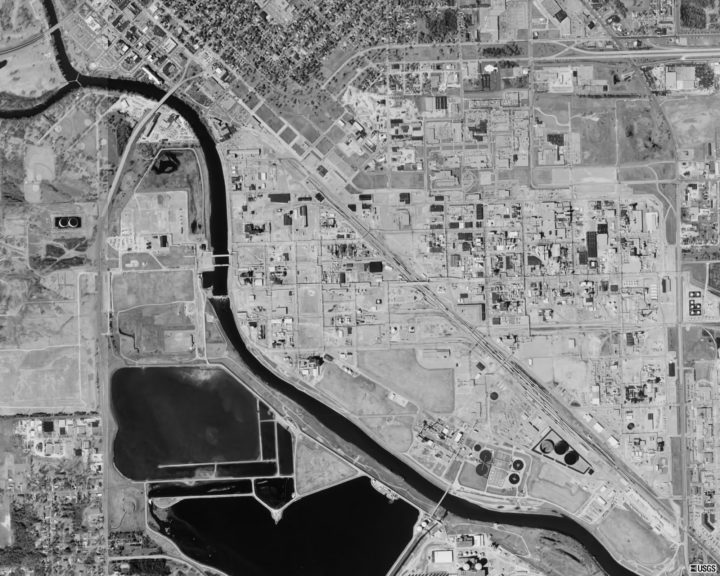
Dow’s Midland facility
According to the original complaint that was filed on behalf of the state of Michigan and the Saginaw Chippewa Indian Tribe of Michigan, Dow began releasing dioxin-related compounds and other hazardous substances into the Tittabawassee River after the company’s facility began operating in 1897. After entering the Tittabawassee, the chemical waste would travel downstream until it reached Saginaw River and Lake Huron’s Saginaw Bay.
ONAMIAP (the organization representing indigenous women of the Amazon and Andes) and the CNA (representing highland peasant communities) have made trenchant criticisms of the initial procedures promoted by the Culture Ministry for consultation in elaborating a national policy for indigenous peoples. The organizations claim that the ministry has failed to produce the conceptual, legal and methodological frameworks required for the proposed national policy. They also say that the ministry has failed to disseminate the diagnostic report that would present the technical and political arguments behind the need for a national policy.
Additionally, the organizations argue that ten years is too long a period for the policy and that the programme for its formulation is unnecessarily tight and pressured. There is no guarantee that the ministry will provide professional advice and expertise which otherwise the indigenous organizations would have to fund themselves.
The UN General Assembly has adopted by consensus the resolution of the “Rights of Indigenous Peoples” that was presented by Ecuador and Bolivia. The resolution expands the mandate of the United Nations Voluntary Fund for Indigenous Peoples to support the participation of Indigenous peoples in United Nations business and human-rights and climate-change processes. It also proclaimed 2022–2032 as the International Decade of Indigenous Languages to draw attention to the loss of Indigenous languages and the urgent need to preserve and promote them.
The General Assembly is the main deliberative, policymaking and representative organ of the United Nations that comprises all 193 Member States of the UN.
A federal judge in Alaska has declared that President Trump’s order revoking a sweeping ban on oil and gas drilling in the Arctic and Atlantic oceans is illegal, putting 128 million acres of federal waters off limits to energy exploration. “President Trump’s lawlessness is catching up with him,” Erik Grafe of Earthjustice said in a statement. Grafe was the lead attorney from the environmental law organization who argued to reinstate Obama’s leasing withdrawals in the Arctic and Atlantic. “The judge’s ruling today shows that the president cannot just trample on the Constitution to do the bidding of his cronies in the fossil fuel industry at the expense of our oceans, wildlife, and climate,” he said.
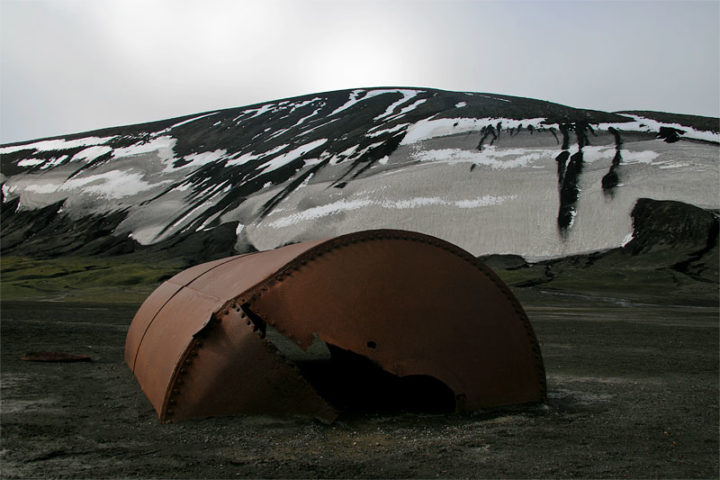
Photo by AntarcticBoy on flickr. Some rights reserved.
Trump’s rollbacks of Obama-era conservation policies have suffered nearly two dozen setbacks in federal court, largely on procedural grounds. Though the administration is appealing many of these decisions and holds an advantage if the cases reach the Supreme Court, the rulings have slowed the president’s drive to expand fossil fuel production in the United States.
The Impact Assessment Agency of Canada found that the Province of Manitoba is not conforming to federal government guidelines in its pursuit of the Lake Manitoba and Lake St. Martin Outlet Channels Project. The Agency determined that the Environmental Impact Statement (EIS) submitted by Manitoba Infrastructure does not conform to the requirements previously outlined in 2012 and 2018. Additionally, the Agency found the Manitoba government has not properly consulted with Indigenous stakeholders including the Manitoba Métis Community whose rights would be impacted by the project.
“This is just one more striking piece of mounting evidence, that the Pallister government does not adhere to a so-called gold standard of consultation,” said MMF President, David Chartrand. “It is imperative that this premier and all premiers follow the law. These laws have been implemented for a reason and failure to comply will only result in false blaming and failure to do the right thing.”
Representatives of Brazil’s indigenous community have strongly warned Switzerland against ratifying the free-trade agreement with the Mercosur countries Brazil, Argentina, Paraguay and Uruguay . “Anyone who feels committed to the environment cannot support this free-trade agreement,” Sonia Guajajara, general-secretary of the indigenous umbrella organization APIB, said at a press conference. Together with eight other representatives of the Brazilian Indigenous population, Guajajara is on a European tour in her fight against free-trade agreements.
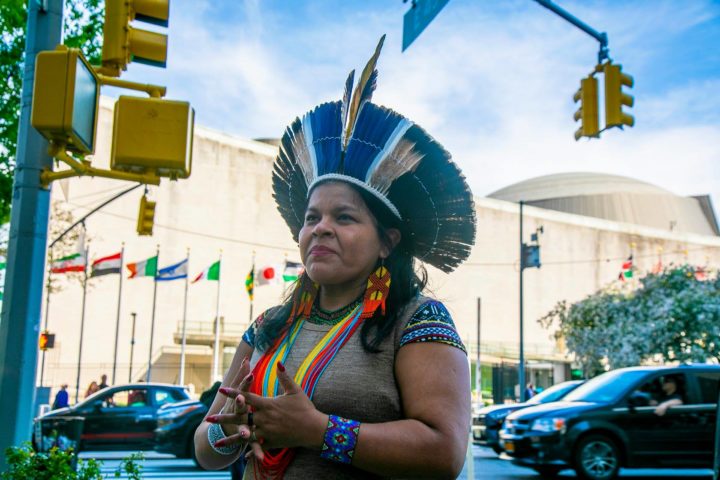
Sônia Bone Guajajara on her way to speaking at the UN Permanent Forum on Indigenous Issues at the Forest Land Defenders Event. Photo Credit: WECAN International/Teena Pugliese.
A statement from the Swiss economics ministry said that around 95% of Swiss exports to the Mercosur area, which is made up of 260 million inhabitants, would be tariff-free. Technical barriers to trade would be abolished, Swiss service providers would have easier access to markets and bilateral economic relations would be strengthened. Proponents of the trade deal expect it to be ratified in 2021.
The Center for Support of Indigenous Peoples of the North (CSIPN), an Indigenous rights group that advocates for the 270,000 Indigenous peoples in the Russian Federation, has been shut down by the Moscow City Court. The Ministry of Justice requested the liquidation of CSIPN on the basis that the organization’s charter does not comply with recent amendments to legislation on non-profit organizations. The CSIPN was also charged with having failed to submit reports to the Ministry, and for listing an invalid address. Moscow City Court refused to give the CSIPN more time to make the necessary changes and avoid liquidation.
Moscow City Court’s decision to liquidate the organization is believed to be the culmination of a campaign against the organization and its leadership that started in 2014 for its sustained efforts to defend the human rights of the Indigenous peoples of Siberia and the Russian North and Far East.
Indigenous Mapuche in Temuco, a city 420 miles south of the capital of Santiago, tore down several statues of Spanish conquistadors and Chilean national heroes that dotted the city’s downtown area. Some called the destruction of the monuments an act of vandalism. But peoples like Verónica Figueroa Huencho, a Mapuche scholar at the University of Chile in Santiago and Mapuche herself, do not see it that way. “The symbolism of the destruction of these statues is important to us because they were put in ancestral territory and for many years we had to see the image of these conquerors, you know, outside of our homes, outside of our community,” Huencho said.
Protesters took the head off the bust of Dagoberto Godoy, a Chilean aviator, and hung it on the bronze hand of Mapuche warrior Caupolicán. One of the leaders of the Mapuche rebellion against the Spanish conquistadors, Caupolicán was captured and killed by Spanish troops in 1558.
A new fund will be launched in 2020 for First Nations’ investments in renewable energy in remote communities along B.C.’s northern coast. Coast Funds — an Indigenous-led conservation finance organization to strengthen the well-being of First Nations and the ecological integrity of the Great Bear Rainforest and Haida Gwaii — and the Province announced the Renewable Energy for Remote Communities on Tuesday.
The fund will see $7.9 million in new investments made with coastal First Nations towards transitioning their remote communities’ fossil fuel-dependent electrical grids to renewable energy sources.
The Navajo managed their affairs for centuries in the spectacular buttes and mesas of what is now San Juan County, Utah, until white settlers moved in and established political and economic control here nearly 150 years ago. Two years ago, two Navajo men were elected to the three-member county commission, giving Navajo a controlling stake in San Juan County.
The Navajo-majority commission has been pushing for major changes, including opposition to the Trump administration’s policy to allow more development on federal land. Now, a politically conservative white minority is pushing back by seeking changes that could dilute the new commission’s power and potentially even carve out a new county.
It’s Native American Heritage Month, a time that is meant to honor the bedrock nations that lived on this land for thousands of years before the founding of the United States. But last week, President Donald Trump decided to make November “National American History and Founders Month,” to celebrate the country’s “dedication to promoting liberty and justice.” His administration put out the news in a press release on Halloween.
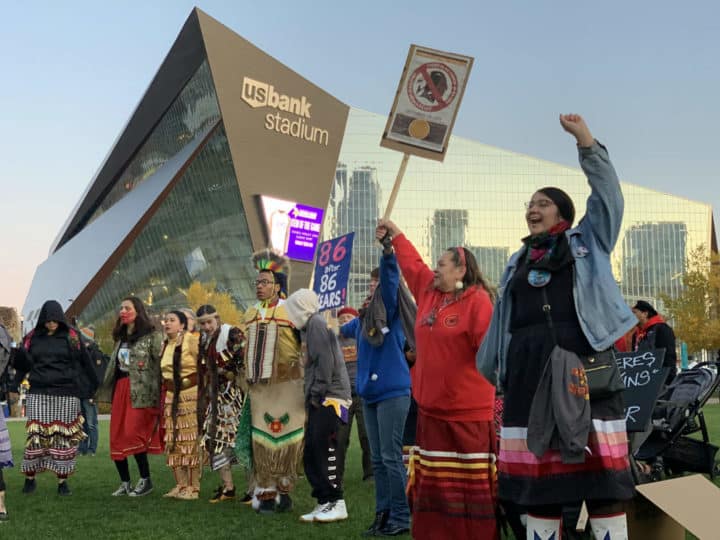
Pictured: Indigenous people gather outside of U.S. Bank stadium in Minneapolis in protest of the visiting Washington Football team. October 24, 2019. (Photo: Sarah Manning)
“In an era of alarming displays of support and sympathy for white nationalism coded as patriotism, we recognize that the decision to prioritize the celebration of “founders” by the President, with a purposeful exclusion of Native communities, is a direct effort to diminish both tribal sovereignty and growing social movements for justice, equity, and inclusion,” wrote Crystal Echo Hawk and Nick Tilsen. “This action was an attempt to further diminish Indigenous Peoples in our own land and an attempt to erase us from discussions about this country’s origins.”
This is the Indigenous Rights Report.

Indigenous Peoples are putting their bodies on the line and it's our responsibility to make sure you know why. That takes time, expertise and resources - and we're up against a constant tide of misinformation and distorted coverage. By supporting IC you're empowering the kind of journalism we need, at the moment we need it most.